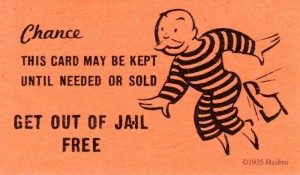
Why Can’t We All Just Get Along?
Why Can’t We All Just Get Along?
Dear Readers: I want to respond to Steve, who commented on last week’s column, Smoky the Guest You may remember that I specifically avoided advising Princess about how she could take this issue to the landlord. I felt I was responding directly to her reticence to get her neighbor in trouble with the landlord. I also wanted to convey my conviction that it is rarely justifiable for a tenant to campaign for the eviction of another tenant.
Steve asked: This might not be a tenant-vs-tenant issue if: the lease prohibits longterm guests; the lease prohibits subleasing; and/or the lease prohibits smoking. In which case, it would potentially be a landlord-vs-tenant issue, right?
Can a lease in SF legally contain any of the above rules? If so can a landlord enforce them?
The short answer is, I agree, and yes to all of the above. A lease can contain all sorts of prohibitions. Many leases contain clauses prohibiting or limiting long term guests. Almost all leases prohibit or limit subletting. These days more and more leases prohibit smoking in the unit.
There are no laws or rules that regulate actual wording of a lease unless those terms are discriminatory, illegal or void as against public policy. That’s not to say that there aren’t a whole bunch of laws defining what is against public policy. For example, a term limiting or prohibiting a tenant’s right to complain about uninhabitable conditions is unenforceable, as is a term shifting the responsibility to correct those conditions from the landlord to the tenant.
So, yes, a lease in San Francisco can contain all of those terms and none of those categories of terms have been found void as against public policy. (I believe that terms restricting guests or visitors should be void as against public policy because they infringe on the constitutional right of free association, but I don’t think there is much case law on that issue.)
And, yes, the landlord in this case could enforce those terms if they were contained in the neighbor’s lease. But how would the landlord find out about the guest or the illegal sublet or the smoke? Princess or another tenant in the building would have to rat the neighbor out. Then, assuming he followed procedure and could prove his case for breach of the lease, the landlord could evict the neighbor for cause. He could righteously proclaim that he did it for Princess’s benefit, when in fact he did it to get rid of a long-term, rent-controlled tenant and raise the rent to $2,500.00!
As tenants, we have to be very careful about advocating the eviction of other tenants. Clearly, I’m not saying you have to put up with a knife-wielding psychopath who threatens your children. (Often, that’s the landlord anyway, except that he’s a lead-paint-chip wielding sociopath.) But seriously, tenants need to stick together as often as possible.
We need to try to create community in our buildings so that when problems like noisy neighbors or smoky neighbors arise, solutions can be discussed without mutual distrust. Think about it, it is in the landlord’s interest to keep tenants at each others’ throats. When tenants fight among one another they don’t band together politically to, say, make the landlord weatherstrip the front door to keep the smoke out of the hallway or pass laws to require landlords to noiseproof between floors to justify charging the $2,500.00.
Princess did the right thing by refusing to cave into an urge to try to just get rid the problem by getting rid of her neighbor. It’s unfortunate that she didn’t feel like she knew Smoky well enough to invite herself in for a beer and help him rewrite his resume.











